I'm trying to join table 1 to table 2 to get table 3. (See desired output) However, I can't seem to get it to work since there are so many options since the table only contains one value. A left join doesn't seem to work.
I found this: Left Join without duplicate rows from left table
which seems to match my use case, but Outer Apply is not in PrestoDB.
I essentially want to match each row in T1 with a single one in T2.
